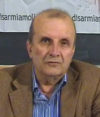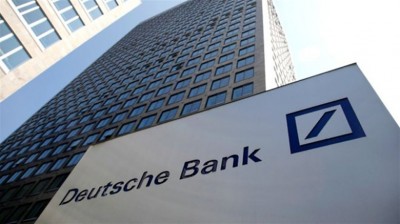The New Financial Weapons of the West
IN FOCUS, 15 Nov 2021
Manlio Dinucci | Il Manifesto/Global Research - TRANSCEND Media Service
9 Nov 2021 – New weapons are being added to the arsenal of the West’s economic and financial policies. In order to understand their nature and scope, it is necessary to start from those used up to now: sanctions – including the heaviest one, the embargo – implemented mainly by the United States and the European Union against entire states, companies and individuals. Fundamental is to understand the criterion by which they are decided: the U.S. and EU decide at their sole discretion that a state or other entity has committed a violation, establish the sanction or total embargo, and demand that third countries comply with it, under penalty of retaliation.
In 1960, the United States imposed an embargo on Cuba, which, having freed itself, had violated its “right” to use the island as its own possession: the new government nationalized the properties of U.S. banks and multinationals that controlled the Cuban economy. Today, 61 years later, the embargo continues, while U.S. companies are demanding billions of dollars in repayments from Cuba.
In 2011, in preparation for the U.S.-NATO war against Libya, U.S. and European banks seized 150 billion dollars of sovereign wealth funds invested abroad by the Libyan state, most of which subsequently disappeared. In the great robbery, Goldman Sachs, the most powerful U.S. investment bank, of which Mario Draghi was vice president, stood out.
In 2017, following new U.S. sanctions against Venezuela, assets worth $7 billion were “frozen” by the U.S. and 31 tons of gold deposited by the Venezuelan state at the Bank of England and Germany’s Deutsche Bank were seized.
Against this backdrop is the new, colossal financial operation launched by Goldman Sachs, Deutsche Bank and other major US and European banks. Ostensibly mirroring that of sanctions, it involves not economic restrictions or seizure of funds to punish countries found guilty of violations, but the granting of funding to governments and other virtuous entities that adhere to the “ESG Index: Environment, Society, Governance.”
The official purpose of the ESG Index is to establish standards to avoid the imminent climate catastrophe announced by the Glasgow Conference, to defend human rights trampled by totalitarian regimes, to ensure good governance on the model of the great Western democracies. To set these standards are mainly the U.S. Department of State, the World Economic Forum, the Rockefeller Foundation, the World Bank, supported with a subordinate role by some UN organizations. The greatest guarantee of human rights is represented by the U.S. State Department, whose embargo on Iraq with UN approval caused, in 1990-2003, a million and a half deaths, including half a million children.
The financial operation focuses on climate change: the UN Conference in Glasgow announced, on November 3, that “Finance goes green and resilient”. The Glasgow Financial Alliance for Net Zero is born, joined by 450 banks and multinationals from 45 countries since April, which commits to “invest over the next three decades more than 130 trillion (130,000 billion) dollars of private capital to transform the economy to zero emissions in 2050.” The capital is raised through the issue of Green Bonds and investments made by mutual funds and pension funds, largely with the money of small savers who risk finding themselves in yet another speculative bubble.
By now, there is no bank or multinational company that is not committed to achieving zero emissions by 2050 and to helping “poor countries” in this sense, where over 2 billion inhabitants still use wood as their only or main fuel. Solemnly committed to zero emissions is also the Anglo-Dutch oil company Royal Dutch Shell that, after causing an environmental and health disaster in the Niger Delta, refuses to reclaim the polluted land. So, while waiting for zero emissions, the inhabitants continue to die from water polluted by Shell’s hydrocarbons.
______________________________________________
 Manlio Dinucci is a research associate of the Centre for Research on Globalization, a geographer, and geopolitical scientist. In the 1980s, he directed the magazine Lotta per la Pace (born from “Appeal against the installation of nuclear missiles in Italy”) and was Executive Director for Italy of the International Physicians for the Prevention of Nuclear War, winner of the 1985 Nobel Peace Prize. His latest books are L’arte della guerra/Annali della strategia USA/NATO 1990-2016, Zambon 2016; and Guerra Nucleare Il Giorno Prima, Zambon Editore; 2017.
Manlio Dinucci is a research associate of the Centre for Research on Globalization, a geographer, and geopolitical scientist. In the 1980s, he directed the magazine Lotta per la Pace (born from “Appeal against the installation of nuclear missiles in Italy”) and was Executive Director for Italy of the International Physicians for the Prevention of Nuclear War, winner of the 1985 Nobel Peace Prize. His latest books are L’arte della guerra/Annali della strategia USA/NATO 1990-2016, Zambon 2016; and Guerra Nucleare Il Giorno Prima, Zambon Editore; 2017.
This article was originally published on Il Manifesto. Translated from Italian.
Copyright © Manlio Dinucci, Global Research, 2021
Go to Original – globalresearch.ca
Tags: Economics, Embargo, European Union, Finance, Sanctions, UK, USA, West
DISCLAIMER: The statements, views and opinions expressed in pieces republished here are solely those of the authors and do not necessarily represent those of TMS. In accordance with title 17 U.S.C. section 107, this material is distributed without profit to those who have expressed a prior interest in receiving the included information for research and educational purposes. TMS has no affiliation whatsoever with the originator of this article nor is TMS endorsed or sponsored by the originator. “GO TO ORIGINAL” links are provided as a convenience to our readers and allow for verification of authenticity. However, as originating pages are often updated by their originating host sites, the versions posted may not match the versions our readers view when clicking the “GO TO ORIGINAL” links. This site contains copyrighted material the use of which has not always been specifically authorized by the copyright owner. We are making such material available in our efforts to advance understanding of environmental, political, human rights, economic, democracy, scientific, and social justice issues, etc. We believe this constitutes a ‘fair use’ of any such copyrighted material as provided for in section 107 of the US Copyright Law. In accordance with Title 17 U.S.C. Section 107, the material on this site is distributed without profit to those who have expressed a prior interest in receiving the included information for research and educational purposes. For more information go to: http://www.law.cornell.edu/uscode/17/107.shtml. If you wish to use copyrighted material from this site for purposes of your own that go beyond ‘fair use’, you must obtain permission from the copyright owner.
